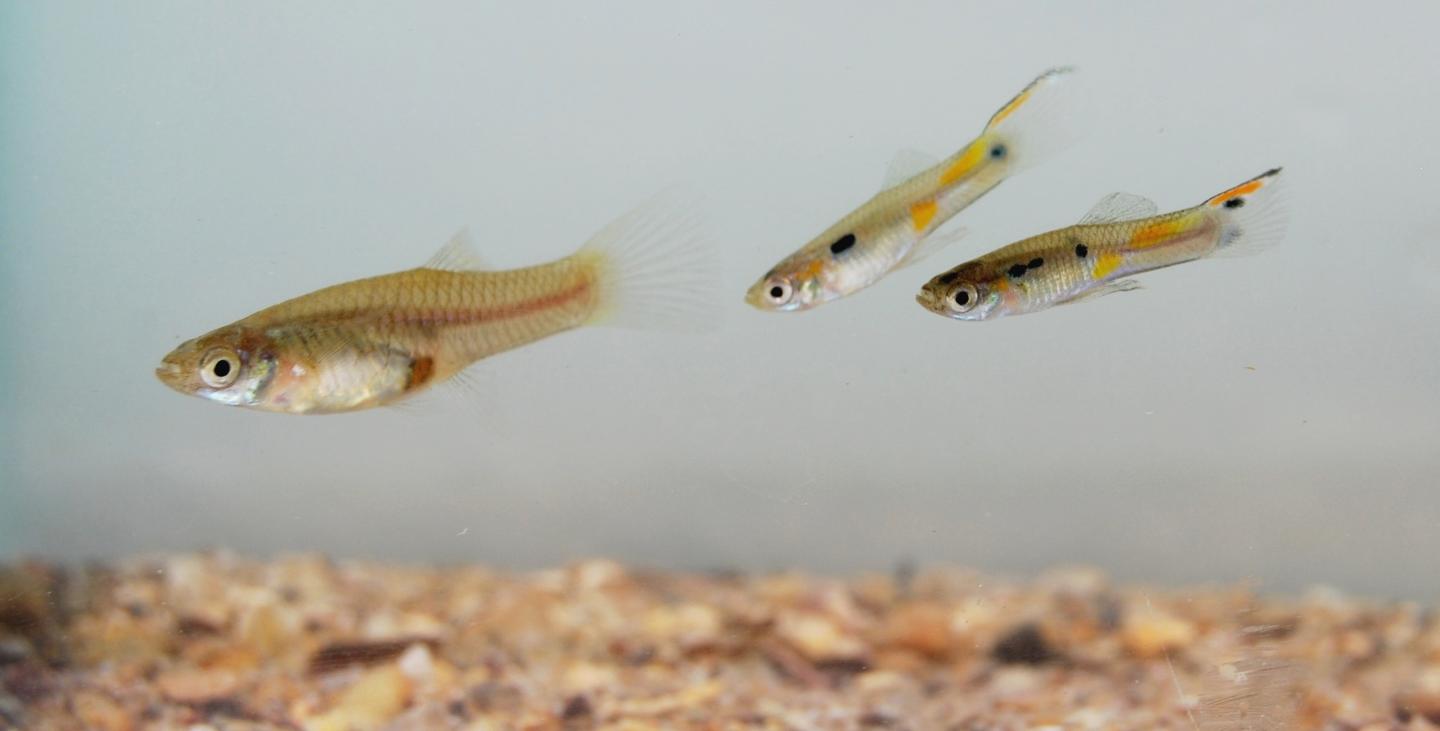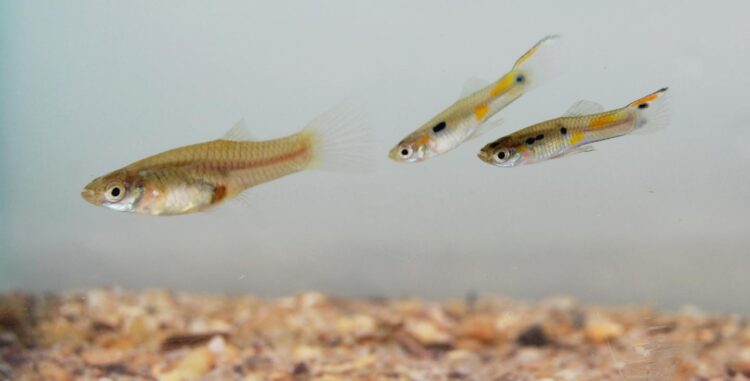
Credit: University of Exeter
Just like humans trying to stick to New Year’s resolutions, guppies have varying levels of self-control, a new study shows.
Researchers from the University of Exeter and Ghent University studying the behaviours of Trinidadian guppies tested “inhibitory control” (suppressing unhelpful impulses or urges).
The tiny fish first learned how to swim into a cylinder to get food – then a cover was removed to make the cylinder transparent.
Inhibitory control was measured by whether a guppy resisted the urge to swim directly towards the food – bumping into the cylinder – or still swam around, relying on previous learning.
The findings revealed “consistent individual variation” – some guppies had more self-control than others.
“Studies of inhibitory control have traditionally focussed on a few bird and mammal species, but we now know it exists in a wide range of animals,” said Dr Alessandro Macario, of Exeter’s Centre for Research in Animal Behaviour.
“As well as finding consistent differences between individual guppies, the population of guppies we studied were, on average, half as able to control impulses as a different strain of guppies tested in a previous study under similar conditions.
“We can’t be certain about the causes of this difference, but it’s possible that the strain we studied had evolved in different social and environmental conditions – with less need for inhibitory control.”
The study examined captive females, with each guppy tested multiple times.
In total, the fish inhibited the urge to swim directly at the food in 28.5% of trials.
No improvement was seen over time, but the researchers say this might have occurred if the guppies had been tested for longer.
Professor Darren Croft, also of the University of Exeter, said: “Our study is a first step towards understanding how inhibitory control has evolved in guppies.
“Guppies live in small rivers alongside predators so, for example, they might need the ability to hide and resist the urge to leave that hiding place to get food.
“The next step in this research is to examine the extent to which this trait affects guppies’ chances of survival or reproduction.”
###
The paper, published in the Journal of Fish Biology, is entitled: “Intraspecific variation in inhibitory motor control in guppies, Poecilia reticulata.”
Media Contact
Alex Morrison
[email protected]
Related Journal Article
http://dx.





